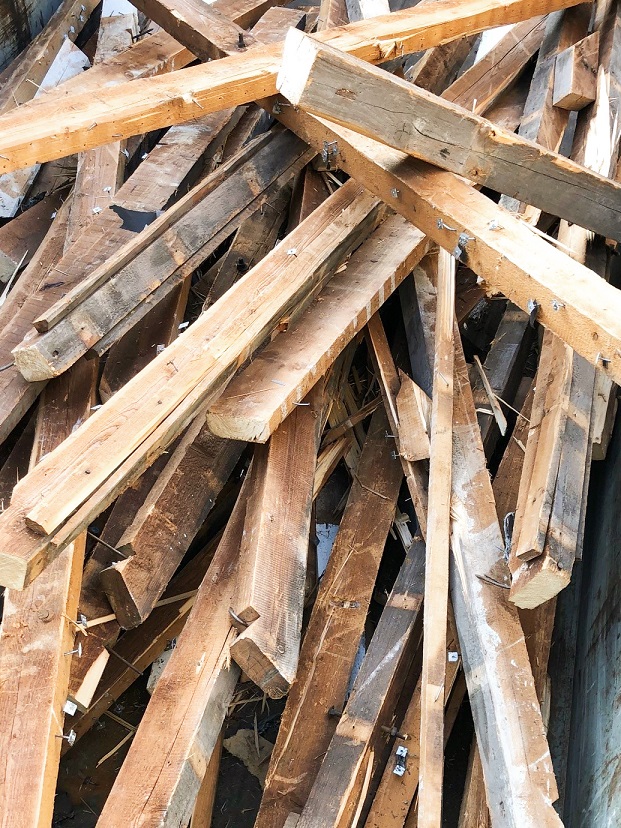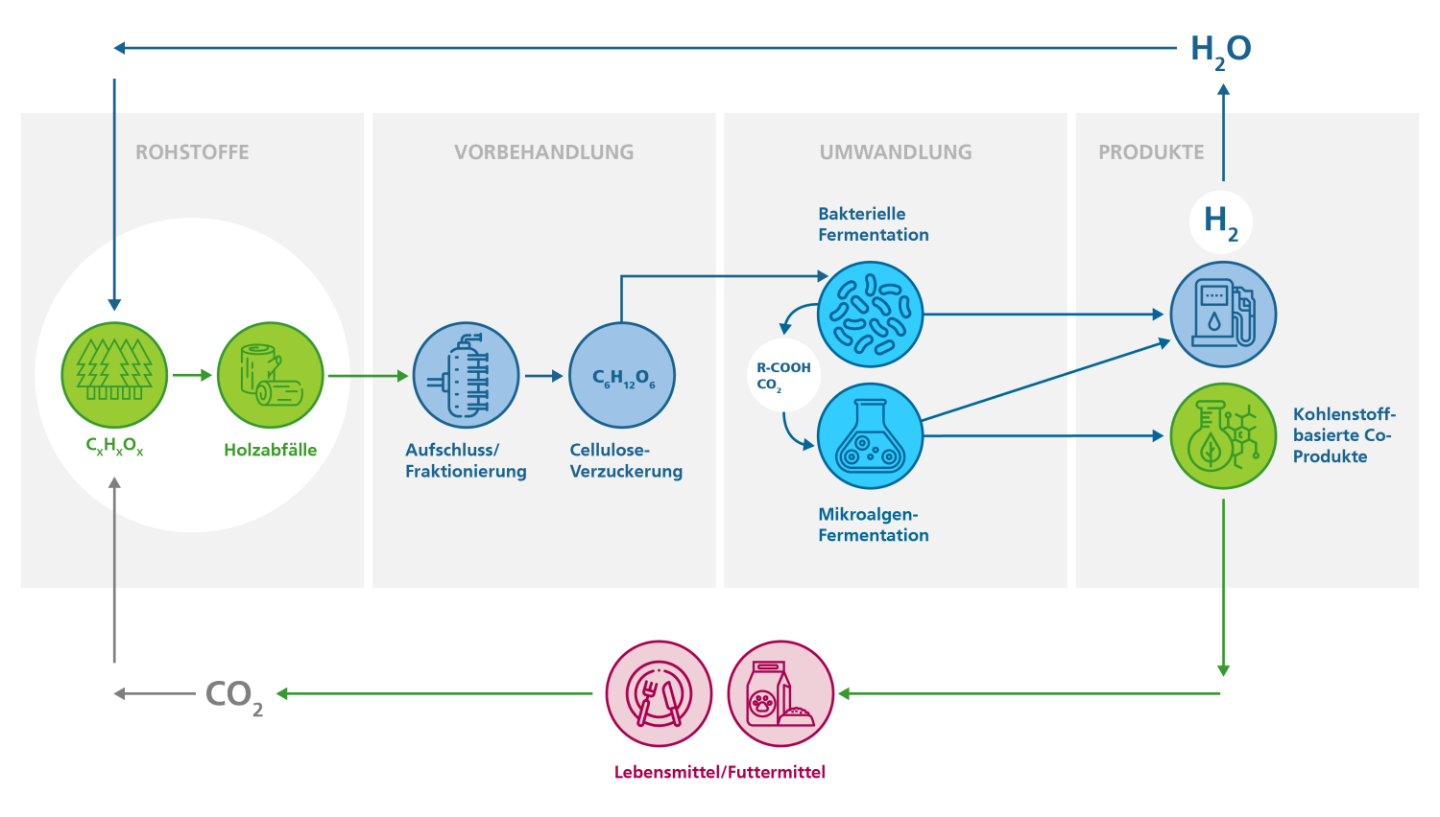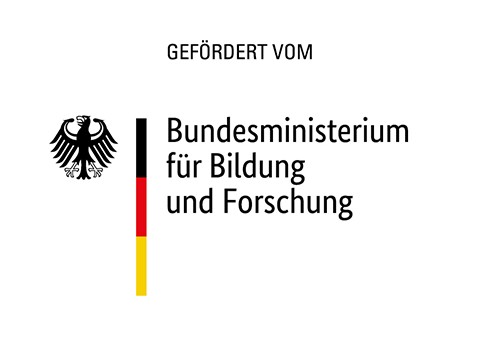The Black Forest region wants to develop wood waste as a local resource for the decentralized production of biohydrogen as a regenerative energy carrier. To this end, the potential of wood waste for the production of hydrogen and its energetic use is being investigated and two processes for the biotechnological production of hydrogen and co‑products is being developed and demonstrated in an integrated pilot plant at the Black Forest Campus.
H2Wood – BlackForest – Biointelligent hydrogen production from wood and waste wood in the Black Forest

Challenges and objective
Due to its high proportion of forest, the economy of the Black Forest is strongly oriented towards the use of wood. This generates significant amounts of wood waste, e.g. residual wood, waste wood and production waste, some of which currently has to be disposed of at high cost. For sustainable and regional value creation, the project "H2Wood – BlackForest" aims to develop these wood wastes as a local resource for the production of biohydrogen and biobased products.
Solution approach
As a basis for the implementation of a wood-based circular economy in the region, aspects and potentials of hydrogen-based sustainability in the Black Forest as well as scenarios for an accelerated reduction of CO2 emissions are investigated. The studies conducted by Fraunhofer IPA and University Institute IFF are directed at the wood processing industry, mobility service providers, technology companies as well as energy suppliers, municipalities and rural/city districts and will be summarized in a hydrogen roadmap for the Black Forest region.
For the process engineering aspects, a plant concept for the production of biohydrogen from wood waste by means of biotechnological processes is analyzed and evaluated as an alternative to thermochemical processes. As a first step, a pretreatment process will be developed to remove chemical components such as adhesives or varnishes from waste wood, followed by fractionation and cleavage of the cellulose obtained into sugars. For the biotechnological conversion of the wood sugars into hydrogen, Fraunhofer IGB investigates and combines two fermentation processes using hydrogen-producing microalgae and bacteria, respectively.
To demonstrate the technical feasibility and obtain initial operating data, the process stages will be set up as semi-mobile modules on the basis of the design data determined on a laboratory scale at Fraunhofer IGB and integrated into an automated plant at the Black Forest Campus.
Impact and application potentials
By reducing CO2 emissions, the project helps to achieve the climate protection targets. On the one hand, the regeneratively produced energy source biohydrogen replaces previous fossil energy sources, for example in the mobility and industry sectors. On the other hand, the biotechnological approach links the energy recovery of the wood waste with a material use, in which the CO2 released from the wood during the biotechnological conversion is bound in the form of carbon-based co-products. Thus, the combined material utilization of waste wood and wood production waste also contributes to the establishment of a circular economy based on renewable raw materials with biobased products for the food and feed industry as well as the chemical industry.

Project information
Project title
H2Wood – BlackForest – Biointelligent hydrogen production from wood and waste wood in the Black Forest
Project duration
August 2021 – July 2024
Project partners
- Fraunhofer Institute for Interfacial Engineering and Biotechnology IGB, Stuttgart, Germany (Coordination)
- Campus Schwarzwald (Centrum für Digitalisierung, Führung und Nachhaltigkeit Schwarzwald gGmbH), Freudenstadt, Germany
- Fraunhofer Institute for Manufacturing Engineering and Automation IPA, Stuttgart, Germany
- University of Stuttgart, Institute of Industrial Manufacturing and Management IFF, Stuttgart, Germany
Funding
We would like to thank the German Federal Ministry of Education and Research (BMBF) for funding the project "H2Wood – BlackForest", promotional reference 03SF0669A.
